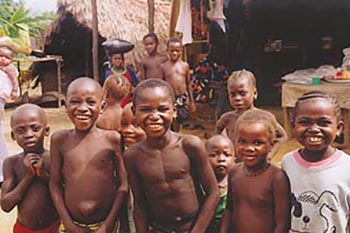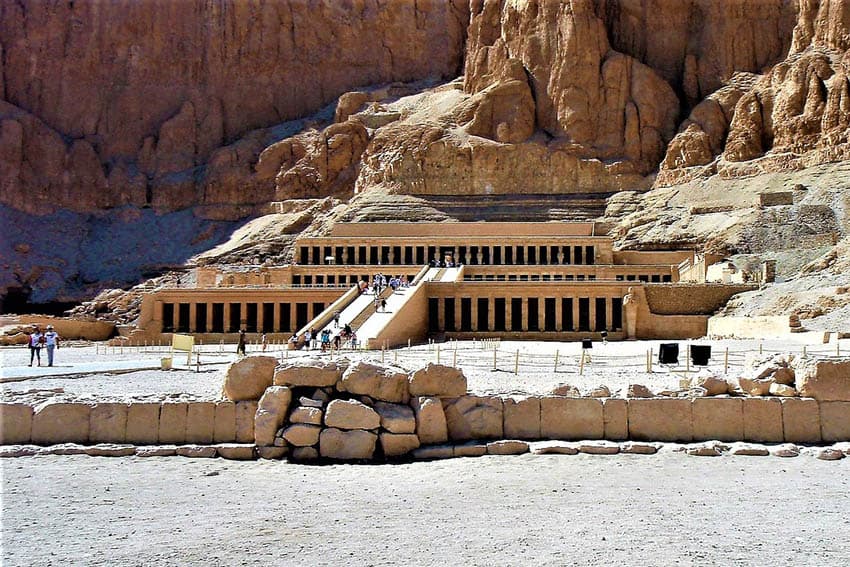By Matt Brown

President Kennedy told me to ask what I can do for my country. President Carter taught me to share with my neighbors my caring and my labor.
President Clinton reminded me that I have an obligation to the people of the world to help them make the most of their own lives. And so, like so many idealistic college graduates, I swallowed the government’s rhetoric and signed up for the Peace Corps.
While overall, my Peace Corps experience was positive, I learned a lot about the organization and now have a different view of it then when I joined over two years ago.
People have many misconceptions about Peace Corps. There is also a lot the government doesn’t tell you about being a volunteer that can only be learned, like I did, through experience.
The Toughest Job You May or May Not Love
Many people join the Peace Corps to help the people of the third world. While this altruistic attitude is great to have going in to it, most of the volunteers I met became disillusioned with their work by their second year. Peace Corps volunteers do some great work all over the world, but much of it is self-motivated with little support from Peace Corps’ administration in country. Also, volunteers sometimes find it difficult to motivate host country counterparts or, in extreme cases, find their work not welcome at all.

Though work is an important reason to have volunteers in a country, the other two goals of the Peace Corps, to help people of other countries learn about Americans and to help Americans learn about people from other countries, I feel are what makes Peace Corps worthwhile. It is through this cross-cultural exchange that prejudices are toppled, boarders are erased, and friendships are forged.
It is important to remember, however, that just because Peace Corps is an American governmental agency does not mean you have to support government policy or preach American doctrine as a volunteer. This false preconception turns a lot of people off to the Peace Corps. In many places where volunteers serve, the volunteer is the only American the local people will ever meet. You don’t have to be a goodwill ambassador for America.
The Two Year Vacation
Simply by being friendly, culturally sensitive, and hard working, people will get a good impression of Americans. Also, keep in mind that volunteers serve in countries only at the invitation of the host government, and therefore Peace Corps is not a tool of American imperialism.
After an intense three month training program in the host country, volunteers are turned loose to their various posts around the country. From there, it is up to the individual how much work he or she wants to accomplish.
With little supervision from Peace Corps administration, a motivated volunteer can complete all his or her work and still have time to travel within the host country to visit other volunteers or see other parts of the country.
Additionally, each volunteer is given two days of vacation per month, or 48 days over two years which can be used to travel to other countries in the region, or back to the U.S. for a visit.

At the end of service, Peace Corps gives every volunteer either a plane ticket back to the U.S. or the cash equivalent. Many volunteers take advantage of the latter option and use the opportunity of already being in an exotic location to take an extended trip before returning home.
What’s in it For Me?
Though no one joins the Peace Corps to get rich, the organization does provide some financial incentives. From the first day as a Peace Corps volunteer, until the day service ends, all expenses are paid for. This includes round trip airfare, housing in country, and a living allowance comparable to the cost of living at your assigned post.
Additionally, Peace Corps provides medical and dental coverage and will evacuate a volunteer with a health problem that can’t be taken care of in country. Upon completion of service, Peace Corps gives each volunteer roughly $6,000 to help you get resettled in America.
It’s Not for Everyone
The opportunities for personal growth, in my opinion, far outweigh the financial benefits of Peace Corps. In many cases, volunteers learn one or two foreign languages. Volunteers also learn a great deal about the countries in which they serve. Peace Corps is well respected among graduate schools and employers. Having been a volunteer looks great on a resume and the Peace Corps is a good starting place for a career in international development or the Foreign Service.
For many people, their 27 month tour will be one of the most challenging things they ever accomplish. As a volunteer, you will be bored, you will be lonely, and you will get some sort of exotic illness. You will need a good sense of humor, heaps of flexibility, and donkey carts full of patience. You will have to lower your comfort level and raise your tolerance level.
Some volunteers don’t finish a full 27 month tour. Peace Corps gives you the option of quitting and going home at any time with no penalty.
Though I sometimes question how much work I accomplished, overall I am glad that I served in the Peace Corps and I recommend it to anyone with an adventurous spirit, a giving heart, and two spare years on their hands. It’s a great way to see some of the world while making a positive impact at the same time. As long as you approach it with realistic expectations, and realize you probably won’t change the world, you will have a rewarding Peace Corps experience.
Nuts and Bolts
The Peace Corps was founded in 1961 by President Kennedy. Today 7,500 volunteers serve in 71 countries.
Regions served by Peace Corps volunteers include Central and South America, Africa, Eastern Europe and former Soviet countries, Asia, and the South Pacific.
The application process can take up to nine months and involves the
application, recommendations, interview, and nomination. Prospective volunteers can list regions they would prefer to serve in, and can deny an invitation to serve in a country in order to wait for an assignment in a different country.
Applicants must be Americans and at least 18 years old. There is no upper age limit. Most volunteers have at least a Bachelor’s degree, while those without have relevant work experience.
Training is three months in country and is rigorous. It includes language, cross-cultural, technical, and health components.
Assignments are for 24 months and are in the sectors of education, health/HIV/AIDS, environment, agriculture, and business development.
Peace Corps and the Tsunami Relief Effort
The earthquake and tsunami that struck Southeast Asia in 2005 left hundreds of thousands of people in need of immediate disaster relief. Many philanthropic people were quick to respond to the crisis with generous donations. However, there are some who would rather be on the ground in the hardest hit areas to give their time to the relief effort.
The Crisis Corps is a branch of the Peace Corps that was created to respond to immediate disaster relief needs. It sends volunteers to disaster effected areas for short four to six month assignments. Applicants must have served in the Peace Corps.
Crisis Corps is currently conducting a programmatic needs assessment in the tsunami damaged region, and anticipates upcoming projects in the fields of health, sanitation, and civil engineering. The organization is seeking resumes from returned Peace Corps volunteers with the following skills:
What the Crisis Corps Needs Right Now
Mental health workers
Degreed public health workers
Water sanitation engineers
Civil engineers
Project managers with extensive experience in disaster recovery and reconstruction
Fluent Thai speakers
Matt Brown was a Peace Corps English teacher in a village in Guinea from 2001-2003. He is now a freelance writer and photographer living in northern California.
- The Wild Mississippi: 2340 Miles Across Ten States - April 8, 2024
- Exploring the Floating Villages of Tonle’ Sap Lake - April 3, 2024
- Woman Traveling Solo on Turkish Buses - March 27, 2024


